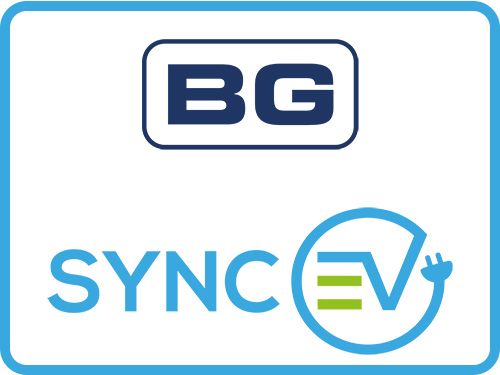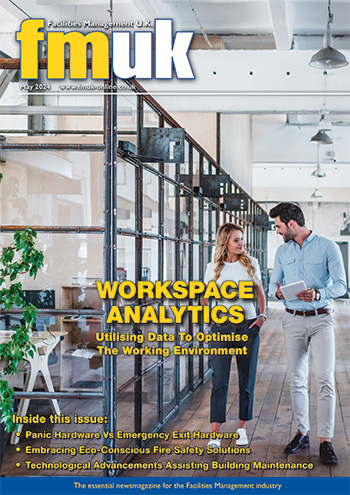Isle Of Anglesey County Council Achieves Significant Increase In Recycling Rates Across Its 70 Sites Ahead Of The New Law

The success comes following action to separate recyclable waste ahead of new workplace recycling law that comes into effect from 6th April 2024.
Julie James, Minister for Climate Change said: “Wales’s new workplace recycling law will help improve both the volume and quality of recycling we collect each year. This is not only important in delivering against the climate and nature emergency but will crucially also deliver benefits to the economy by capturing a resilient supply of high‑quality recycled materials. This shows how we can work together to reduce our environmental impact and lay the foundations for a stronger, greener economy.”
Meiron Edwards, Chief Waste Management Officer at the Council said: “We have taken a very considered approach to making the changes to the separation of waste in our council managed buildings across the county. We began our journey over 12 months ago and have just started our new collection service in September.
As part of the planning process, the Council ran a four‑week trial in seven of its key sites across the county. This helped inform them of potential challenges, logistics, and processes involved in rolling it out across the full 70 sites.
The Council procured and awarded a contract to Veolia UK to perform the new collection service. They worked together to determine the volume and quantity of bins for each site based on their general waste production, as well as the frequency of collection required. Once this was decided, over 1000 internal recycling boxes were issued to the 70 sites with colour coded, specially designed labels, along with detailed guidance and instructions on what could and could not go in each recycling box, as well as the procedures involved such as rinsing out containers.
The Council implemented the changes across its 70 sites since September and in just one month experienced almost 15% uplift in recycling rates across sites.
Meirion added: “We are only a couple of months into the new waste separation process but so far, so good. The feedback from the changes has been positive, and the results show for themselves. Most people separate their waste streams at home already, so the changes align with current household waste guidance, which should help. There are still some challenges that need addressing, but overall, we are pleased with the progress.”
“I think setting up a project team across disciplines within the council and planning has been the key to getting it right. The advice we would give to any organisation, regardless of size, is to investigate what changes you need to put in place sooner rather than later. You need to consider everything from the size and number of bins to the frequency of collection, as well as how you will set about communicating these changes with your staff, colleagues, guests, visitors, or users. The communication of the changes, along with clear instructions and guidance will be the key to achieving the most efficient segregation of recycled waste.”
Executive Director of the Environmental Services Association, Jacob Hayler, said: The new Workplace Recycling Regulations mark another large step forward for Welsh recycling, building on the successful household system.
The recycling and waste management industry very much supports measures to harmonise requirements, which reduces confusion, increases participation, and boosts performance. The certainty that clear and timely regulation provides also enables industry to invest in, and deliver, the services needed to support higher recycling rates.”

In just 20 years, Wales has gone from recycling less than 5% to recycling 65% of our waste and is now ranked third in the world. This helps to save around 400,000 tonnes of carbon emission every year. The new law will continue to improve these recycling rates and support Wales’ commitment to become a zero‑waste nation by 2050.
For more information on how the changes will affect your business and for, guidance on what you need to do visit www.gov.wales/workplacerecycling.
Advice for workplaces preparing for the new law:
- Plan ahead – find out what the changes mean to you, what you need to do to comply and allow plenty of time to implement changes.
- Talk to your recycling and waste collector – you need to make sure they can collect your separated waste.
- Look at where and how your waste is collected – can you reduce the amount of waste you produce? What materials will you need to separate and what is the best way to do it.
- Think about what internal and external bins you might need – what containers will you need for each of the different recycling materials.
- Communicate – develop a plan to communicate the changes to staff, guests, visitors, customers etc so they understand what they need to do with their waste.
- Think about health and safety – make sure your bins are accessible, are easy to access and move.
What the new law means:
- All workplaces including businesses, public sector organisations and charities, will need to separate food, paper and card, glass, metal, plastics and cartons, unsold textiles and small waste electrical/electronic equipment. You can mix paper and card together in the same container and you can mix metal, plastic and cartons together. Until the law starts in April cartons do not need to be recycled with plastics and metal. There will also be a ban of the disposal of food waste into the sewers. No food waste should be put down the sink or drain into a public drain or sewer.
- It is the occupiers of a workplace who must ensure recycling is separated for collection. If multiple workplaces are in a shared location, each individual organisation is responsible but may need to agree with the landlord or facilities manager if a central recycling system is required.
- Some workplaces are already separating their waste for recycling but they will need to check what the new law includes to make sure they are complying when it comes into effect in April.
- The law also applies to all waste recycling collectors and processors who manage household‑like waste from workplaces.

























































